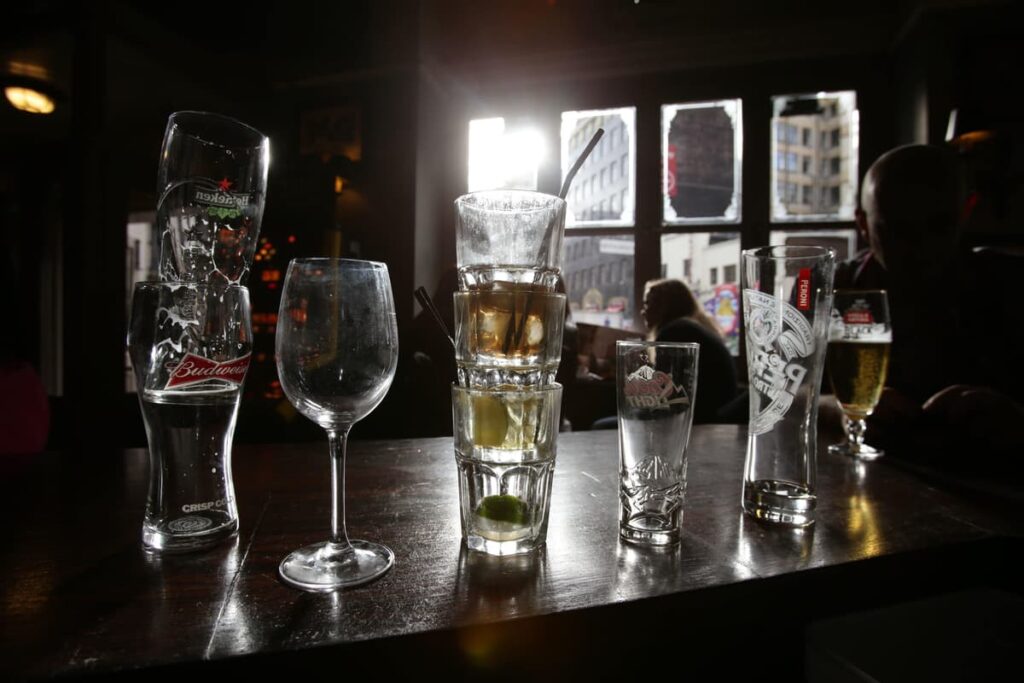
Each year, millions of people take part in charitable endeavours or resolve to abstain from alcohol for a month at the beginning of the year.
Already, 2023 has seen a great number of people drink less across the year.
According to drinkaware, the percentage of those who drink less than once a week has increased to 39 per cent from 33 per cent in 2019.
Adults have reported drinking less alcohol at home. In 2023, only 18 per cent of people reported drinking alone at home at least once a week, down from 24 per cent in 2021.
Meanwhile, Statista reported that 15 per cent of females and 14 per cent of males participated in last year’s dry January challenge.
Are you participating this year?
If you are, then continue reading to find out if it is good for you.
What are the benefits of dry January?
Giving up the booze for a mere 31 days has plenty of upsides – starting with heaps of benefits for your health.
Reduced diabetes risk and weight loss
Dr Gautam Mehta, a senior lecturer at UCL’s Institute for Liver and Digestive Health, said: “Our study saw a weight loss of around 2kg, a decrease in blood pressure of around five per cent, and improvement in diabetes risk of almost 30 per cent.
“We also noted large decreases in blood-growth factors that are linked to certain cancers. However, we don’t know how long these benefits last, or whether they translate to long-term improvements in health.”
Giving your liver a break
If your liver is already damaged from drinking, then just a few weeks out from doing so can give it much-needed to heal and repair too.
Research has also found just four weeks without alcohol can result in reduced blood pressure and heart rate.
A study published in The Lancet Oncology estimated that 4.1 per cent of new cancer cases in 2020 were caused by alcohol consumption – and that the “level of consumption that minimises health loss is zero”.
While you might often feel as though you’ve had a solid night’s sleep after just a few drinks (or a big night out), this is rarely the case as alcohol actually disrupts your regular sleep cycle.
A study published in early 2024 found that after completing dry January, 34 per cent of people reported an overall improvement in sleep, with 23 per cent saying they experienced more unbroken sleep.
Things in this department might get worse before they get better, though. If you’re used to using alcohol to help yourself drift off, you may find that without it, you’re more sensitive to noise, nighttime jitters and even sweats.
“Embarking on Dry January brings about a roller coaster for sleep, with initial challenges gradually giving way to long-term improvements,” notes The Sleep Charity. “Understanding these shifts and implementing expert tips can help navigate the unexpected twists in your sober slumber journey.”
Dr Fiona Sim, a former GP and medical advisor to Drinkware, previously told the Standard: “Alcohol is associated with symptoms of anxiety and depression.
“In people who drink regularly and heavily, alcohol can cause your memory to be impaired and may put you at increased risk of severe mental illness
“With long term drinking, memory loss can be serious. When you stop drinking, your risks are reduced but if the damage has already been done to your brain cells, not all the harm can be reversed.”
Charity Alcohol Change UK highlights how a person’s skin may begin to improve once they pause drinking.
Its website explains: “Alcohol reduces the production of anti-diuretic hormone, so you lose water and sodium more quickly. This is the sworn enemy of soft, plump, peachy skin. A few weeks off alcohol should lead to a reduction in facial redness, and see the size of facial pores diminish too.”
Who shouldn’t do dry January?
Experts unanimously agree that before committing to dry January, those who are physically or psychologically dependent on alcohol should consult a healthcare provider. This is due to the possibility of severe withdrawal symptoms if you suddenly quit drinking.


